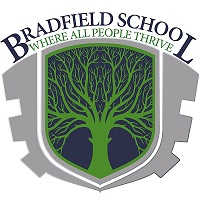English
Intent
'Everyone is safe, happy and making progress in order to thrive'
'Everyone to be able to speak, read and write accurately, fluently and confidently'
The written and spoken word is not only influenced by, but also shapes, humanity. The curriculum is therefore sequenced so that students understand, question, critique and create rules, stories and patterns in literature and, more broadly, in society. Mastery of English gives all pupils the power to understand the codes that dictate the conventions of shared language, history, art and culture as well as giving them the power to challenge, break, rebuild and create new realities from the knowledge they have learned.
At the heart of our curriculum is the unwavering belief that all young people, no matter what their starting point, can, and will, thrive within a global community. Therefore, through the curriculum, they will be taught to understand and interact with the voices of others and deploy the power of their own voice. Students will become curious, scrupulous and critical thinkers armed with an extensive, versatile vocabulary and flexible knowledge base, allowing them to communicate with accuracy, precision and flair and access and create excellent, compelling writing.
Inspire: All students are exposed to high quality texts that represent the best that has been thought and said. Texts are both mirrors and windows, reflecting back students' own lives, backgrounds and experiences, while providing windows to less familiar worlds.
Learn: All students acquire knowledge and skills in order to 'know more' and then be able to 'remember more' and ultimately 'do more' both academically and in their wider lives.
Transform: All students to become confident and independent in applying knowledge, accurately and precisely, in order to make links and connections between their own learning and the world around them.
At KS3, our mission is to enable all students to flourish in English. Students graduate from Year 9 as confident and literate readers and critical and accurate writers. By the end of Key Stage 3, they will know more about the foundational texts in literature, will be able to remember more about English Literature’s social and historical context, and will be able to do more creative and critical writing.
At Key Stage 4, our mission is to enable all students to recognise what they know and can do in order to build on the foundations by developing independence and confidence in all aspects of reading and writing. All students to be able to successfully transfer knowledge of KS3 literature, context and grammar to KS4 courses in Language and Literature. By the end of Y11, they will be able to apply knowledge to new and unseen texts, contexts and situations.
Key Stage 3
| Year 7 | Year 8 | Year 9 |
|
|
|
Key Stage 4
Students work towards the AQA GCSE in both English Language and English Literature.
| Year 10 | Year 11 | ||
| Language | Literature | Language | Literature |
|
Elements of paper 1 and 2 reading and writing |
|
Paper 1 and 2 reading and writing |
|
